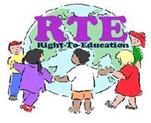Right Of Children To Free And Compulsory Education Act, 2009
News: The Right of Children to Free and Compulsory Education Act, 2009 (RTE Act) was a petition that asked the Delhi High Court to order the Bar Council of India (BCI) to make the RTE Act a required subject in all law schools.
As a fundamental right, all children between the ages of six and fourteen are entitled to free and compulsory education under the Constitution of India, which was amended by the Constitution (Eighty-sixth Amendment) Act, 2002.
The RTE Act was passed by the Indian Parliament on August 4, 2009, as required by Article 21-A.
The RTE Act’s main provisions include providing free and required education to all Indian children between the ages of 6 and 14.
It makes it clear that by “compulsory education,” the competent government is required to guarantee free primary education and ensure that every child in the six to fourteen age range enrols in, attends, and completes elementary school.
No kid is allowed to be held back, expelled, or forced to pass a test until they have finished elementary school.
It includes provisions for the admission of an unadmitted youngster to an age-appropriate class.
The distribution of financial and other responsibilities between the Central and State Governments, as well as the roles and responsibilities of the respective States, local governments, and parents, are all outlined in this document.
It outlines the guidelines and requirements for, among other things, Pupil Teacher Ratios (PTRs), facilities and infrastructure, school calendars, and teacher work schedules.
It calls for the hiring of educators who have undergone the necessary entry-level and academic training, or teachers who are suitably qualified.
Physical and verbal abuse, child entrance screening practises, capitation fees, teacher-led private tutoring, and operating unlicensed schools are all prohibited.
It calls for the creation of a curriculum that adheres to the principles outlined in the Constitution.




